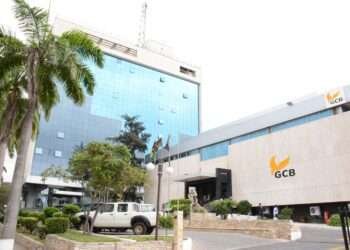Investor confidence and market liquidity on the Ghana Stock Exchange (GSE) continue to face increasing pressure, as the bourse attributes the growing slowdown to the country’s current capital gains tax regime.
According to the Managing Director of the GSE, Abena Amoah, the reintroduction of the capital gains tax on listed securities has created a disincentive for both local and foreign investors, weakening participation on the market and diminishing overall market depth.
Abena Amoah stressed that the policy shift had tilted the investment landscape unfavourably against equities. With other instruments offering more attractive tax benefits, listed securities have become less compelling, resulting in dwindling liquidity levels that threaten the impressive progress the market has made in recent years.
“The Ghana Stock Exchange has been among Africa’s best-performing exchanges over the past two years. But to soar higher, we need the right support — from policymakers, regulators and market participants. We are calling for a review of the capital gains tax on listed securities back to zero to attract more investors and deepen market liquidity.”
Abena Amoah
Pension Funds Seeking New Investment Channels
The GSE boss highlighted the growing pressure created by the expanding pool of pension assets in the country. Since the introduction of the Three-Tier Pension Scheme following the National Pensions Act of 2008, pension fund assets have ballooned to over GH¢100 billion. She noted that these funds were “desperately looking for investible assets,” and the GSE remains one of the most effective platforms to absorb these large volumes of patient capital.
She emphasised that while both government and private enterprises continue to seek long-term financing, the GSE has positioned itself as a strategic bridge to facilitate that connection. However, the persistence of the capital gains tax threatens to dampen the appetite of institutional investors who are otherwise ready to channel funds into equities and corporate bonds.
To create more investment opportunities, Ms Amoah urged cabinet to approve the listing of viable state-owned enterprises on the GSE and GFIM. This move, she argued, would not only enhance capital mobilisation but also significantly improve corporate governance standards across key sectors of the economy.
Pushing the Frontier of Market Expansion
In addition to tax reforms, Ms Amoah called for stronger partnerships to broaden the scope of Ghana’s capital markets. She advocated for increased use of bond-backed Public-Private Partnerships (PPPs) to drive infrastructure development, as well as the issuance of municipal bonds to empower local governments.
Furthermore, she highlighted the opportunity for multinational corporations to localise ownership by leveraging the GSE. This, she argued, would align with Ghana’s broader industrialisation and localisation agenda while providing fresh investment avenues to deepen the market.
Reflecting on GFIM’s 10-year journey, she praised the collaborative efforts of the Ministry of Finance, the Bank of Ghana, the Central Securities Depository, the Ghana Association of Banks, Licensed Dealing Members and ACI Ghana. Together, she said, these institutions transformed a once fragmented fixed-income landscape—marked by bilateral, opaque bond trading—into one of Africa’s most transparent and dynamic debt markets.
GFIM: From Turbulence to Triumph
GFIM’s evolution mirrors Ghana’s resilience. From an initial trading volume of 5.2 billion in 2015, the market surged to 230 billion in 2022, representing an extraordinary 4,300 percent growth in just seven years. The momentum was briefly halted by the Domestic Debt Exchange Programme in 2023, which slashed trading volumes to 98 billion. Yet by 2024, the market regained strength, recording a 76 percent rebound to 174 billion, and by October 2025, volumes had already reached 214 billion.
Ms Amoah described this resurgence as a testament to strong market fundamentals and investor trust. However, she warned that sustaining this progress requires deliberate policy adjustments, particularly regarding the taxation of capital gains.
The Governor of the Bank of Ghana, Dr Johnson Asiama, reaffirmed the central bank’s confidence in the capital market’s turnaround, noting that improved macroeconomic indicators had revitalised trading activity. He pointed to the need for an active repo and securities-lending framework to boost liquidity, referencing South Africa’s successful experience as a model worth emulating.
He also urged Ghana to develop a real-time, digital bond ecosystem linking GFIM to GhIPSS and RTGS platforms, aligning with global leaders like Brazil and India. This, he said, would enable Ghana to anchor regional capital market integration under AfCFTA.
In his remarks, Louis Amoo, Director of the Financial Sector Division at the Ministry of Finance, reaffirmed government’s commitment to strengthening Ghana’s capital markets. He lauded GFIM’s role in improving public debt management, boosting investor confidence and attracting a diverse investor base including pension funds, insurance firms, mutual funds and retail investors.
As pressures mount for urgent capital market reforms, the GSE’s call for the restoration of zero capital gains tax remains central. Stakeholders agree that increasing liquidity and broadening market participation will be key to sustaining Ghana’s long-term growth trajectory.
READ ALSO:West Africa’s $50bn AfCFTA Trade Dream Crumbles Under Corruption and Chaos























